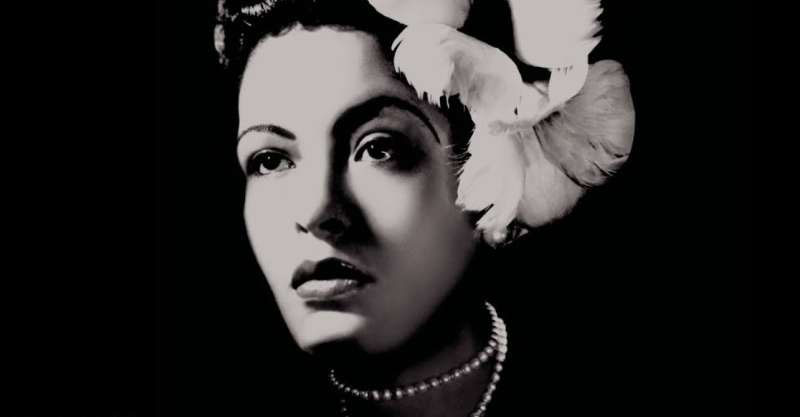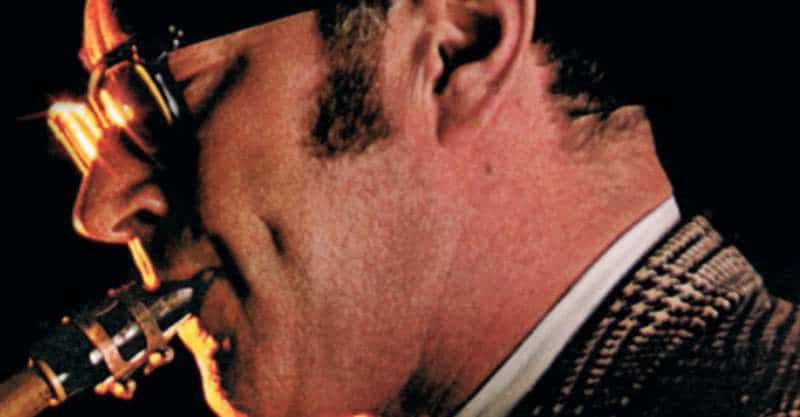
Jazz can be a truly joyful musical experience, and it can be almost as much fun for the listeners as it is for the players. But any art form that can uplift us like that can do the opposite just as effectively.
Here are some of the best sad jazz songs from some of the biggest names in the genre.
“Strange Fruit” by Billie Holiday
Song Year: 1939
Based on a poem songwriter Abel Meeropol wrote a few years earlier, “Strange Fruit” is one of the darker songs in the jazz genre. Though acts as diverse as Nina Simone, Siouxsie and the Banshees covered it over the years, Holiday’s version remains the definitive one.
With its graphic description of the aftermath of racially motivated vigilante violence, the song stands as a brutal depiction and damning portrait of lynching.
Unsure of the content? The strange fruit is the bodies of murdered African-American men hanging from the trees in the American South.
“Lush Life” by Billy Strayhorn
Song Year: 1948
Strayhorn wrote the joyous “Take the A Train,” but he also wrote this dizzyingly sad portrait of the emptiness that a pleasure-seeking lifestyle can leave one feeling.
The narrator thinks back on his nighttime adventures, but rather than feeling happiness, he realizes that he’s missed out on meaningful connections with people and has yet to experience a fulfilling relationship.
The wordplay of the title revolves around “lush” as an adjective meaning rich and luxurious and the pejorative noun meaning of the word— a drunk.
John Coltrane covered the song in a seminal recording, but a little of its sadness is lost without the lyrics.
“A Certain Sadness” by Astrud Gilberto
Song Year: 1967
Astrud Gilberto became a huge star in the 1960s when she sang on Antônio Carlos Jobim’s “The Girl from Ipanema.” Her lovely voice took her places in the jazz and bossa nova worlds, and when she recorded her 1967 album, “A Certain Smile, A Certain Sadness,” she included “A Certain Sadness as the album’s second track.
Like so many sad songs, it tells of lost love, but perhaps most striking is when she sings about how much she loves looking into her love’s eyes, but he refuses to look at her anymore. She ends the song voiding the fear that this particular sadness won’t ever go away.
“The Ballad of the Sad Young Men” by Anita O’Day
Song Year: 1962
The saddest part of “The Ballad of the Sad Young Men” isn’t the ongoing description of what seems to be a generation of guys who’ve lost their way, but rather the fleeting reference to the sad young girls who try to pretend everything will be fine.
O’Day does a great job emoting in this one. Even if you didn’t understand English, you can still hear that she’s singing something sad.
“Almost Blue” by Chet Baker
Song Year: 1989
Elvis Costello wrote “Almost Blue” with Chet Baker in mind, so when Baker himself covered it, it was something of a full-circle moment. Baker, known for his ability as a trumpet player, was also a gifted jazz singer, which helped after he was beaten up in 1968— badly enough that his embouchure never recovered, so he never played the trumpet as well again.
The narrator, singing to a lost love, tells her that the one he’s with now is almost her. That’s depressing, man.
“A Stranger in Town” by Mel Torme
Song Year: 1961
Something about Torme’s voice lent the possibility of sadness— or at least melancholy— to anything he sang. But “A Stranger in Town” has sad lyrics to go with the aching in Torme’s voice.
The narrator finds himself not a stranger in just any town, but in his hometown. He steps off the train to notice that everything has changed, and life has moved on there without him.
“I Guess I’ll Hang My Tears Out to Dry” by Frank Sinatra
Song Year: 1946
Sammy Cahn and Jule Styne wrote “I Guess I’ll Hang My Tears Out to Dry” for a 1944 musical that flopped before it reached Broadway. But its authors wrote a well-crafted song, doing things like rhyming “alibi” with “out to dry.”
Sinatra put his pipes to this one in 1946 and wove the sad tale of recalling a lost love and wallowing in the sorrow of doing so.
Saxophone legend Dexter Gordon played an instrumental version that’s every bit as emotive as what Sinatra did, and Gordon did it without words— just with his sax.
“To Say Goodbye” by Paul Desmond

Song Year: 1969
Brazilian legend Elis Regina lent her stellar voice to Desmond’s haunting version of “To Say Goodbye.” Though Desmond is widely known for his intricate and virtuosic work with the Dave Brubeck Quartet, this tune, recorded for Desmond’s solo album “From The Hot Afternoon,” showed off a softer, mellower side.
His alto saxophone tone is sad enough without Regina’s vocal work. Together, they make a really sad song.
“Gloomy Sunday” by Billie Holiday
Song Year: 1941
Originally sung in Hungarian, “Gloomy Sunday” was called “Vége a Világnak,” which means “end of the world.” It was written by Rezső Seress.
Billie Holiday’s version, with English lyrics, came to be known as the Hungarian Suicide Song, and it was so sad that, during WWII, the BBC banned it from its airwaves due to its deleterious effects on morale.
“Sentimental Journey” by Ella Fitzgerald
Song Year: 1947
Originally recorded by Doris Day, “Sentimental Journey” tells of longing for home. There’s some intimation in the lyrics that the narrator can’t seem to make it back there, though Ella Fitzgerald does sing about having a reservation for the next train.
As melancholy as the song feels, there’s every possibility she never makes the train home.
“Dark Was the Night, Cold Was the Ground” by Blind Willie Johnson
Song Year: 1928
Blind Willie Johnson taught himself to play the guitar at the beginning of the 20th century. He ended up learning to make sounds on the guitar that no one previously had and helped usher in the era of the guitar as a lyrical instrument.
“Dark Was the Night, Cold Was the Ground” was adapted from an 18th-century hymn, and Johnson added some call-and-response elements and others from African-American musical traditions. The lyrics detail the sorrow Jesus felt on the night before his crucifixion.
“It Never Entered My Mind” by Miles Davis
https://www.youtube.com/watch?v=-Np8PJDGq_A
Song Year: 1960
The 1940 Rodgers and Hart show “Higher and Higher” gave us “It Never Entered My Mind,” a song about someone realizing that he’s lost his love, though it had never occurred to him that he’d end up alone.
Trumpet legend Miles Davis recorded this instrumental version in 1956, but it never saw the light of day until the release of “Workin’ with the Miles Davis Quintet,” a 1960 album. Davis’ muted trumpet and Red Garland’s heartbreaking piano work make this song as sad as can be even without hearing the words.
“Oh, You Crazy Moon” by Sarah Vaughan
Song Year: 1963
Tommy Dorsey made the first recording of Jimmy van Heusen’s “Oh, You Crazy Moon” in 1939. This ridiculously sad song went on to get sung by Sinatra, Mel Torme, and Wes Montgomery, to name but a few.
But Sarah Vaughan’s emotive, evocative voice does the song real justice. The narrator scolds the moon for promising a future with a love she no longer has.
“B Minor Waltz (For Ellaine)” by Bill Evans
Song Year: 1981
Bill Evans forever altered the landscape of jazz in general and jazz piano in particular. He had a gift for crafting melodies that didn’t need words to get their message across, and “B Minor Waltz (For Ellaine)” stands as a terrific example.
What’s the song about? Who knows? But it’s such a melancholy melody that you almost have to assume that the titular Ellaine has gone away and Evans is broken up about it.
Released posthumously, the song is one of the last great things the world got from the Bill Evans Trio.
“Don’t Be Sad” by Brad Mehldau
Song Year: 2010
Another tune that can evoke sadness without lyrics, “Don’t Be Sad” from Brad Mehldau (who has been the Next Big Thing in jazz piano for a few years now) paints sonic pictures that don’t really need words.
Steeped in church music as a kid, Mehldau crafts tunes and chord progressions reminiscent of hymns. With that kind of backbone to a piece of music, even the saddest melodies have some hope behind them.
“I Get Along Without You Very Well (Except Sometimes)” by Chet Baker
Song Year: 1956
A paean to broken hearts everywhere, “I Get Along Without You Very Well (Except Sometimes)” effectively conveys the feeling anyone who’s ever lost a true love knows: I have, for the most part, moved on and gotten over you, but there will always be little things that remind me of you.
When I see or hear them, I’m taken back to those first few moments of loss when I thought there was no way I could ever survive this loss.
We’ve all been there, and Hoagy Carmichael wrote this song, but Baker’s rendition stands as the definitive interpretation.
Sad Jazz Song, No.1 by l i l a · 2018
Song Year: 2018
If Mazzy Star were a young Canadian guitarist who sang lots of surrealist lyrics, that young Canadian guitarist would be named l i l a, and she would record “Sad Jazz Song, No. 1.”
This song is almost spookier than it is sad, and while l i l a considers herself more of a dark folk act, her chords and the voicings on her guitar evoke an undeniable jazz ethos.
Sad Jazz Songs, Final Thoughts
The power of music is unmatched when it comes to conveying emotion. After all, the Romantic composers of the 19th century explicitly sought to convey, through music, the non-conveyable. Jazz can do it just as well as any other form of music. These sad jazz songs are just a sample of the emotive might that music can wield.